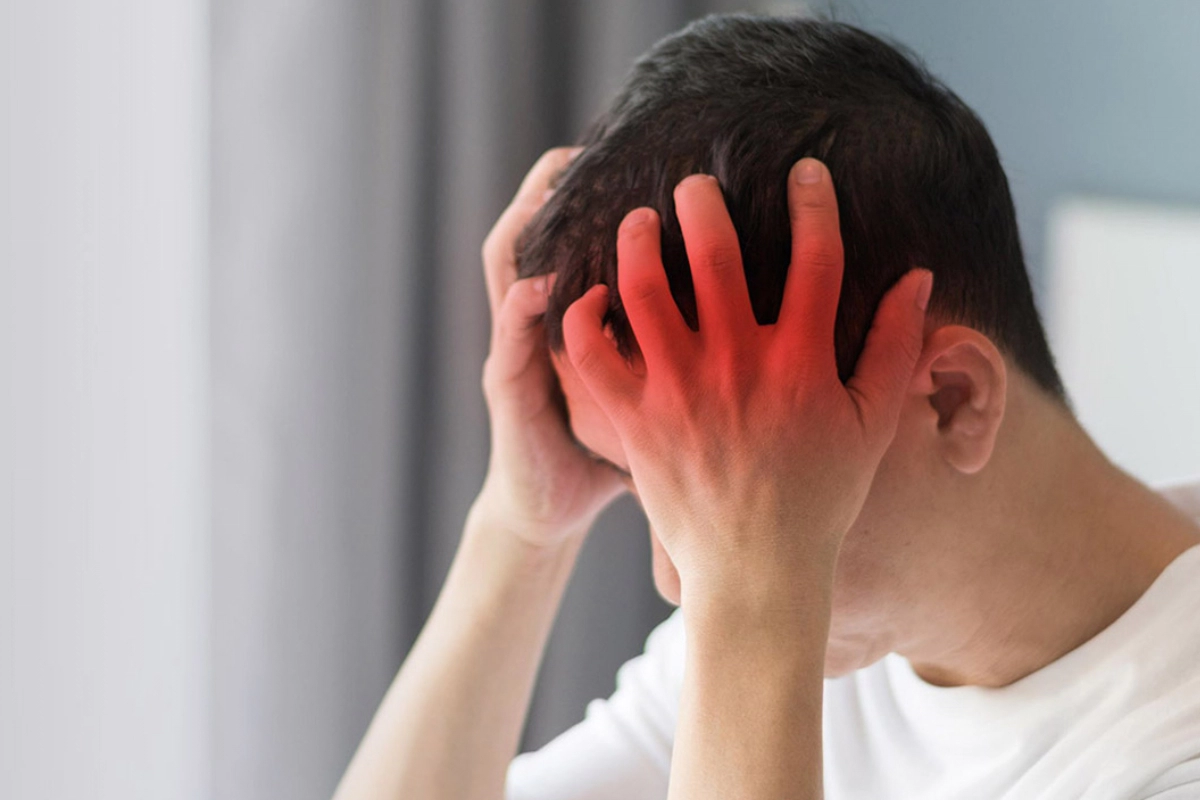Migraine: One of the most incapacitating illnesses in the world is migraine. The specific aetiology of this typical neurological condition, which causes a severe throbbing in the head, is yet unknown.
It is believed that migraine is caused by overactive nerve cells stimulating the trigeminal nerve, which releases neurotransmitters like serotonin and calcitonin gene-related peptides. Inflammation and discomfort are brought on by CGRP’s enlargement of the blood vessels that line the surface of the brain.
Distinct Migraine types
Classic migraine: In this type, there is an aura, which includes symptoms including sensory, verbal, or visual problems. Other brainstem symptoms include dysarthria, tinnitus, vertigo, ataxia, diplopia, and eye issues.
Common migraine: This type causes sensitivity to light and sound and doesn’t have an aura. Mostly, it is unidirectional.
Menstrual migraine: In this condition, the menstrual cycle is linked to the headache.
Vestibular migraine: It can occur with or without a headache and is characterised by vertigo, nausea, and vomiting.
A person may have a silent migraine, in which case they only feel the symptoms of the aura.
It produces nausea, vomiting, and stomach discomfort. Over time, it may transform into a typical migraine headache.
Hemiplegic migraine: This type of headache causes temporary paralysis, numbness, weakness on one side of the body, and dizziness or vision problems.
Ophthalmic migraine: This type of headache causes temporary partial or complete blindness and is accompanied by a dull aching behind the eyes that may later spread to the rest of your brain.
Status migrainosus: In this condition, you must visit the hospital since the pain and nausea are severe. It might continue for more than 72 hours.
Ophthalmoplegic migraine: This type of headache causes droopy eyelids, double vision, and other vision problems in addition to eye pain and paralysis of the surrounding muscles.
There are numerous factors that might cause migraines, including:
- glaring light
- Dehydration
- Female hormonal alterations Stress
- loud noise
- Physical activity at a high intensity
- alterations in sleeping habits
- Several drugs, including oral contraceptives
- a few food items
- Extreme weather fluctuations Smoking Alcohol or caffeinated beverages
- Traveling
- variations in atmospheric pressure
Are there anu treatments for migraine?
Although there is currently no cure for migraines but the symptoms can be controlled.
OTC medications: These include acetaminophen, aspirin, caffeine, and ibuprofen.
Triptans are prescribed to balance the chemicals in your brain, including eletriptan, sumatriptan, rizatriptan, and almotriptan.
The doctor may recommend rimegapant or ubrogepant as CGRP receptor antagonists.
The doctor may prescribe you seizure medications, blood pressure medications like beta-blockers or calcium channel blockers, antidepressants, botulinum toxin, etc. if you get severe migraines or experience migraine attacks frequently.
Single-pulse TMS: A machine is positioned at the back of your head and sends magnetic energy that may reduce discomfort.
Devices that influence the vagus or trigeminal nerve through neuromodulation can help you feel better.
Numerous behavioural and lifestyle modifications, including keeping track of your triggers so you can avoid them, cognitive behavioural therapy (CBT), supplements like melatonin, riboflavin, and coenzyme Q10, chiropractic care, massage, acupuncture, and acupressure, may help to reduce symptoms.
Home cures include:
- drinking lots of water can be helpful.
- Sleeping in a quiet and serene setting.
- Putting ice on your forehead.
Changes in lifestyle to eliminate migraine
According to experts, lifestyle has a significant impact on migraine management. He also discussed strategies for gradually managing the condition.
Breathing techniques, yoga, and meditation can be beneficial: These activities help reduce pain by calming the body and mind. Additionally, they guarantee the abdomen, nerves, and digestive system are all operating properly.
Water and herbal teas are two excellent sources of fluids that can help you manage discomfort. As dehydration is a common cause of migraines, maintaining a sufficient fluids intake may help to reduce pain.
Getting enough sleep: A headache or a migraine may be caused by exhaustion. The body may work better if you get 7-9 hours of sleep each night at the right time.
Moderate physical activity: Exercises guarantee the neurological system’s proper operation.
Stress and triggers: Practice meditation or different breathing techniques to reduce stress. The neurological system becomes severely exhausted when under stress. Understanding the factors that cause your migraines may help you manage them as well.
Additionally, experts believe that migraines can be treated using nerve blocks or radiofrequency ablation of the nerves that are the source of the headaches.
Disclaimer: This material, including advice, provides general information only. It is in no way a substitute for a qualified medical opinion. Take the methods, and claims mentioned in this article as suggestions only; DNP India does not confirm or refute them. Consult a doctor before implementing any such suggestions/ treatment/medicine/diet.
Keep watching our YouTube Channel ‘DNP INDIA’. Also, please subscribe and follow us on FACEBOOK, INSTAGRAM, and TWITTER











